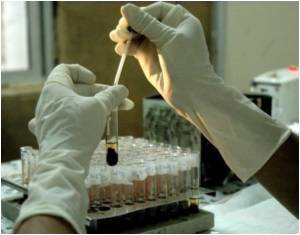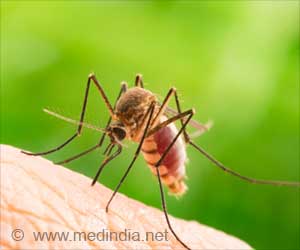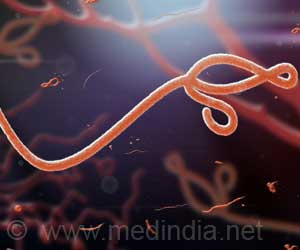Drugs are the mainstay of malaria treatment, yet the parasite is notorious for developing drug resistance.

Drugs are the mainstay of malaria treatment, yet the parasite is notorious for developing drug resistance, which compromises current therapy.
"Malaria remains one of the most globally significant infectious diseases that we face," Nature quoted Phillips as saying.
"Novel chemical compounds with anti-malarial activity represent a potent tool in the process of developing new drugs to treat this disease," she added.
The study started with a "library" of 309,474 chemical compounds.
The researchers used a technique called high throughput screening, in which they tested thousands of compounds quickly to identify those with anti-malarial action.
The screen identified 1,152 compounds that killed the parasite.
They tested whether any of the identified compounds killed malaria parasites by inhibiting an enzyme necessary to make pyrimidine, an intermediate molecule for creating DNA.
She discovered that three of the library's compounds with anti-malarial activity blocked this enzyme.
Two of those had similar chemical structures to a class of known compounds that she and her colleagues have been studying for possible drug development.
The third compound previously was not known to target the enzyme.
"It looked very different from anything we knew about before," she said.
Having a variety of anti-malarial drugs with different chemical structures and modes of action is important because different types of drugs are given together to slow the parasite from developing resistance, said Phillips.
In all, the researchers from the various centers found 172 compounds that are "reasonable starting points" for development of new types of drugs.
"We call the identified candidates 'hits,' but if any of them are going to become drugs, they're going to have to undergo chemical modification. For instance, they may need to be altered chemically to enter the cell more easily, or to improve their pharmacology so they will be more effective in people," said Phillips.
The study appears in the latest issue of Nature.
Source-ANI
TAN
 MEDINDIA
MEDINDIA




 Email
Email





